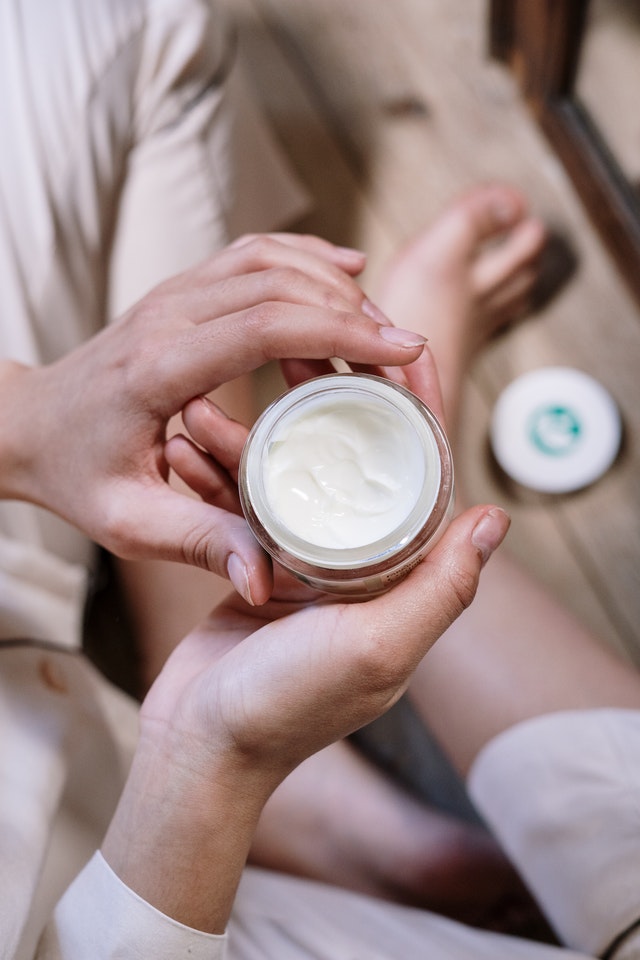Apply sunscreen to your skin every day before going outside. The closest thing we have to a fountain of youth is sunscreen. It does have the ability to slow down the aging of the skin. It may also aid in the prevention of skin cancer. Look for a sunscreen with broad-spectrum protection, an SPF of 30 (or greater), and the ability to withstand water. While it is crucial to protect newborns’ skin from the sun, sunscreen should only be used on children aged six months and up.
Photo by cottonbro from Pexels
Being out in the sun is great fun, but you need to be careful as things like skin cancer can be a worst-case scenario. Tanning is a popular option for sitting out in the sun for hours, but it is something that isn’t great for your skin. If you want to look tanned, use a self-tanner. When you tan indoors or outdoors, your skin ages prematurely, you also raise your chances of developing skin cancer. Using a self-tanner, you may get the look you want without the hazards. Even if you use a self-tanner, you should protect your skin from the sun to maintain it healthy.
Another thing that can help is when you wake up, before going to bed, and after sweating, wash your face. When you wash your face when you wake up, you eliminate the dirt and bacteria accumulated on your face while you were sleeping. Remove any makeup and grime that has landed on your skin, such as smog, smoke, or dirt, before bed. Wash your face gently. Skin looks its best when it is cleansed gently. Wet your face with lukewarm water to gently cleanse it. Then, gently massage a gentle cleanser into your skin in a circular manner using your fingertips. Finish by washing the cleaner thoroughly off your face and gently wiping it dry with a clean towel. Refrain from scrubbing your skin clean. Cleansing your skin may seem natural if you’ve been sweating a lot or have a bad case of acne. Scrubbing irritates the skin, making any skin issue, including acne, worse.
Reduce your anxiety. Finding healthy strategies to cope with stress can also benefit your skin. Psoriasis and atopic dermatitis (eczema) are two skin illnesses that typically emerge for the first time when someone is highly agitated. Many skin diseases, such as acne, eczema, psoriasis, and rosacea, can be aggravated by stress. If you have skin conditions that sometimes can be unavoidable, then look to get the right help; by not having the proper treatment, you can make the conditions worse and more painful. So if you have eczema, make sure you get adequate eczema treatment.
A daily skincare program can help you maintain general skin health and alleviate particular concerns like acne, scars, and dark spots. A daily skincare routine consists of four essential stages that should be completed once in the morning and before bedtime. Choose a cleanser that does not dry out your skin after use. If you have dry skin and don’t wear makeup, clean your face no more than twice a day, or once if you do. Washing for a squeaky-clean feeling is terrible since it removes your skin’s natural oils.
Under sunscreen, a serum containing vitamin C, growth factors, or peptides would be preferable in the morning. Retinol or prescription retinoids function best at night. Vitamin C and E serums, as well as retinol, are available from all different stores. Even oily skin requires hydration, but choose a light, gel-based moisturizer that is non-comedogenic or won’t clog your pores. More cream-based moisturizers may help dry skin. Most brands will designate their products as gel or cream on their packaging.
Overexposure to the sun and tanning beds, strong soaps, chemicals, and poor nutrition can all hasten the appearance of wrinkles and age spots on the skin. With this in mind, it’s essential to take a holistic approach. Eat antioxidant-rich fruits and vegetables, healthy fats from oily fish and nuts, and a varied and balanced diet to care for your skin and optimize your nutrition. This should provide ideal quantities of nutrients, including beta carotene, vitamins C and E, zinc, and selenium, all critical for glowing skin.
Fruits and vegetables are high in antioxidants, which prevent skin from free radical cellular damage. Wrinkling and age spots can be caused by free radicals, smoking, pollution, and sunshine. Consume a rainbow of colorful fruits and vegetables daily, aiming for at least five pieces. Vitamin C is a powerful antioxidant as well. It is required to maintain the immune system, create glowing skin, and aid in healing blemishes. The most acceptable sources are blackcurrants, blueberries, broccoli, guava, kiwi fruits, oranges, papaya, strawberries, and sweet potatoes. Vitamin C is required to form collagen, which helps strengthen the capillaries that supply the skin.
Moisture is required for the skin to remain flexible. Your skin will appear dry, weary, and slightly grey if you are somewhat dehydrated. Drink six to eight glasses of water every day – all fluids count, but water is the best. Keep a large bottle of water on your desk if you work in an office to remind you to drink. Teas that are caffeine-free and herbal are also helpful. Remember that some fruits and vegetables, such as watermelon, courgette, and cucumber, provide fluids as well – and the minerals they contain can help you hydrate your body and skin faster. Avoid smoking and heavy alcohol intake, as both can cause premature skin aging.
You can boost your skin quality and beauty with these simple steps in looking after your skin. Your skin is something that needs daily treatment and looking after. These can be hard to remember sometimes, but you can add them in gradually and even set yourself alarms to remind you to do your skincare routine.






Follow!